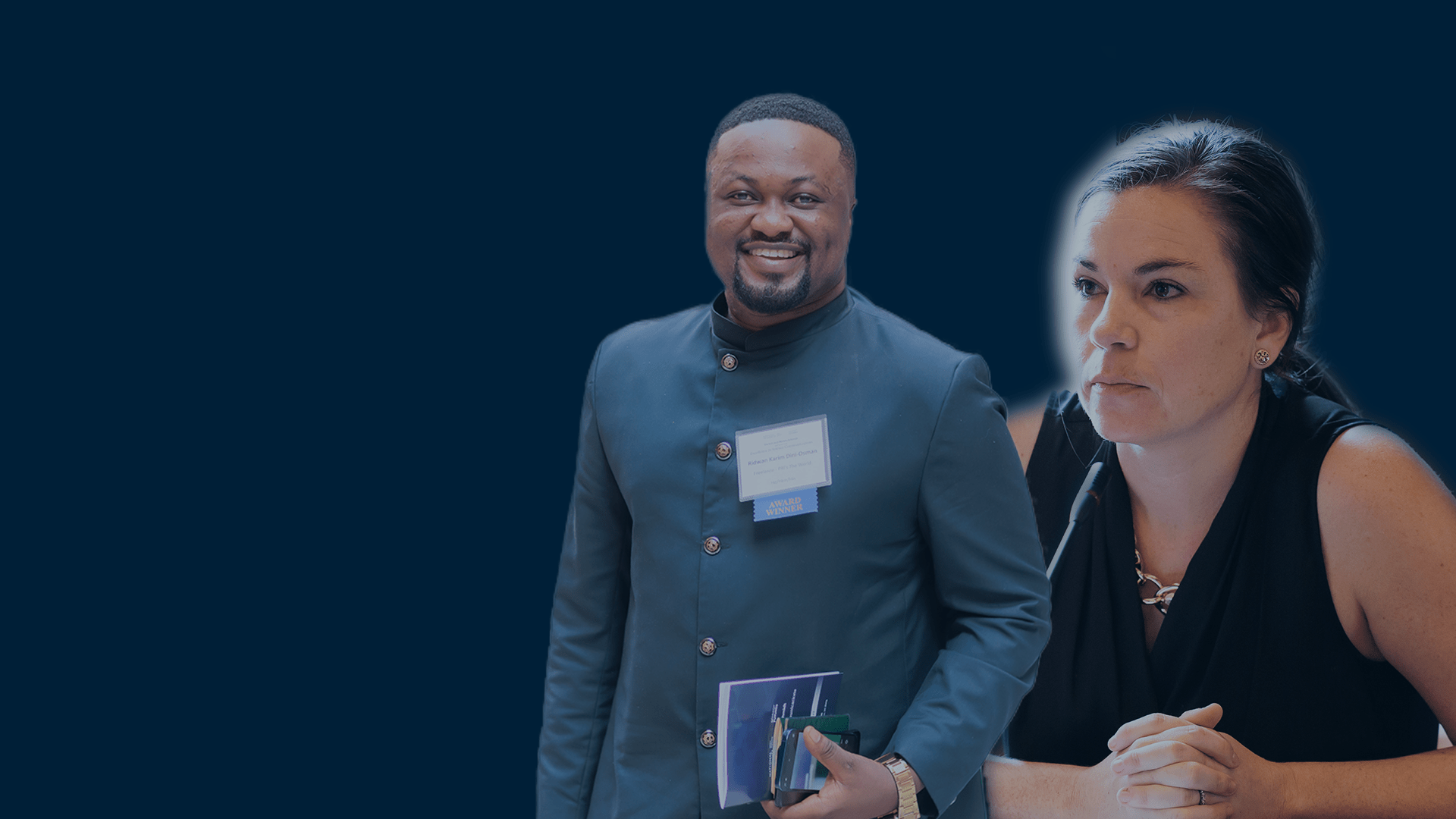
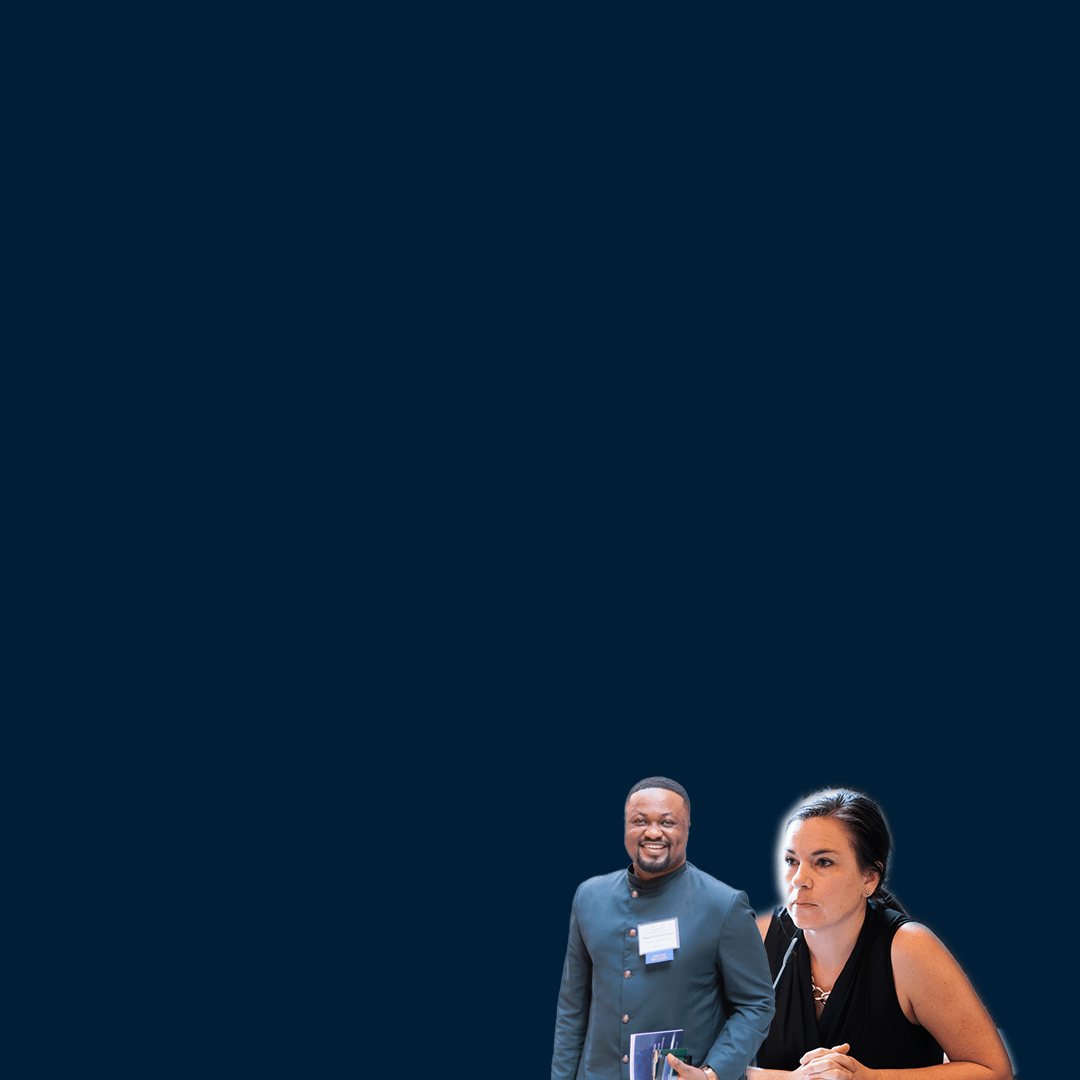
The Eric and Wendy Schmidt Awards for Excellence in Science Communications
Meet the Scientific Journalists Changing Science Communication
Engaging the Public with Complex Ideas and Breakthroughs Across the Sciences.
The Eric and Wendy Schmidt Awards for Excellence in Science Communications launched in 2022 to honor top science communicators, journalists, and research scientists who have developed creative, original work to communicate issues and advances in science, engineering, and/or medicine for the general public. Submissions are now being accepted for the 2023 cohort, awarded by the National Academies of Sciences, Engineering, and Medicine in partnership with Schmidt Futures.
We spoke to two awardees from the first cohort to describe what it means to demystify complex issues related to science, engineering, and health effectively.
-
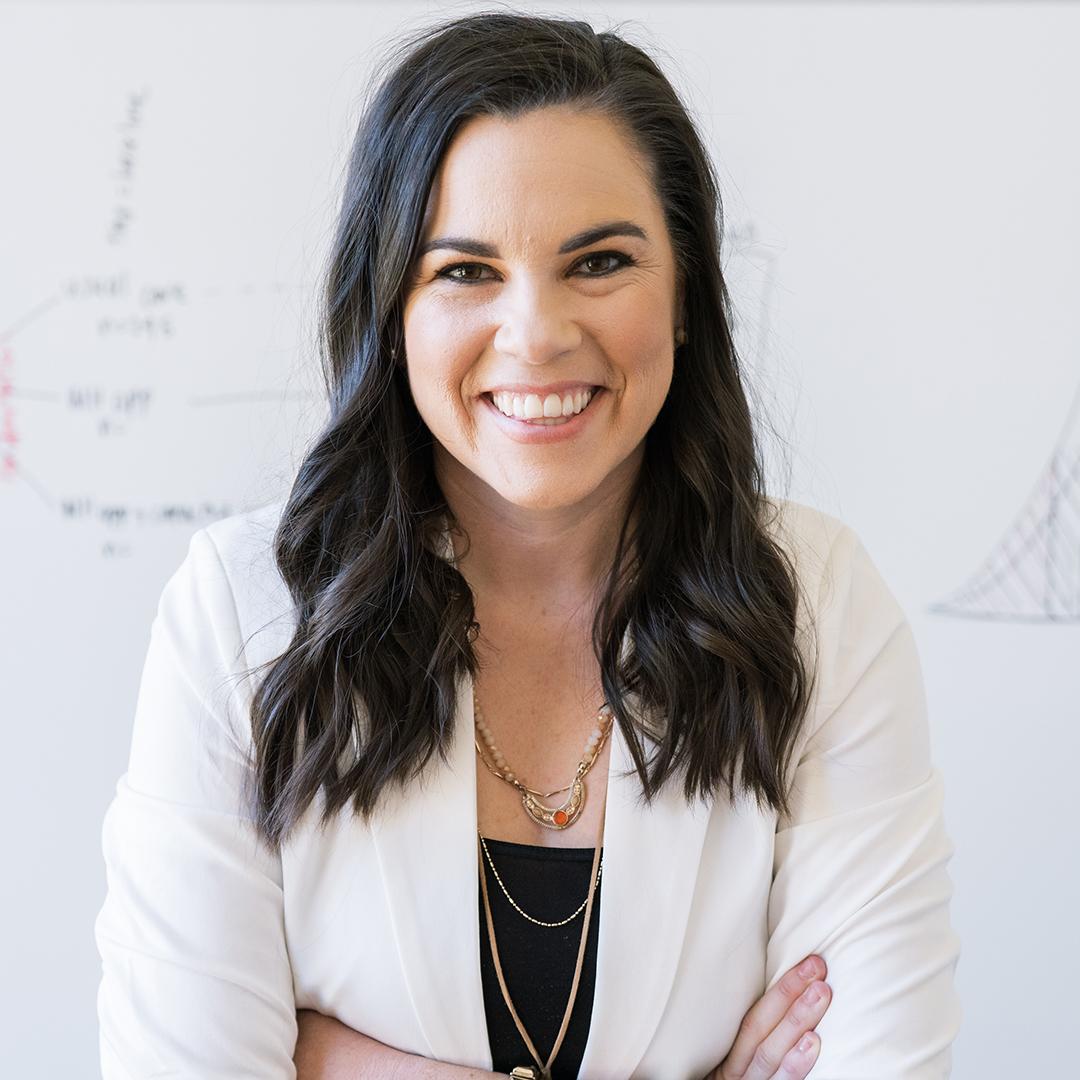
Dr. Katelyn Jetelina is a winner of the Eric and Wendy Schmidt Awards for Excellence in Science Communication, given by the National Academies of Science, Engineering, and Medicine in partnership with Schmidt Futures. These awards recognize science journalists and research scientists who have developed creative, original work that addresses issues and advances in science, engineering, and/or medicine for the general public.
Jetelina, MPH, PhD, is an epidemiologist, data scientist, and scientific communicator. She is also the Director of Population Health Analytics at Meadows Institute, a nonprofit, non-partisan health policy think tank, and a Senior Scientific Advisor to a number of government and non-profit agencies. On the side, Dr. Jetelina is publisher of Your Local Epidemiologist– an international newsletter that “translates” the ever-evolving public health science, so the general public is well equipped to make evidence-based decisions.
What sparked your interest in science journalism?
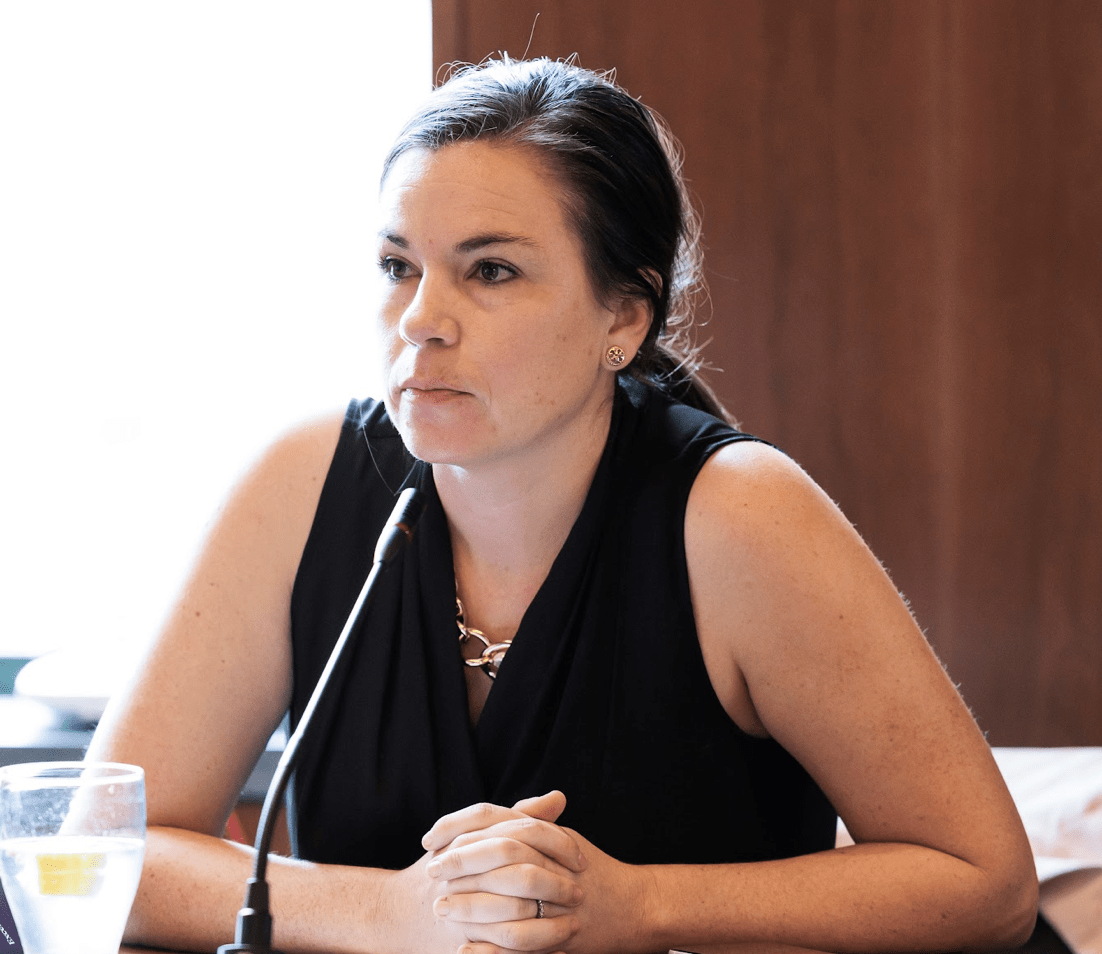
I am a scientist and really stumbled into scientific communication at the beginning of the pandemic. I never had training in it, I just loved teaching and thought I could help people process the firehose of information. I started writing an email ‘translating’ what I was seeing, as an epidemiologist, during the pandemic to faculty, staff, and students. This transpired into a social media page and newsletter and the rest is history.
I think people needed a voice, a face, someone who cared to help navigate through the impossible landscape. There is still an onslaught of misinformation, so fighting rumors was also a key strategy.
Are many of your scientific colleagues also writers? Is there a gap we need to address between research and its public communication?

As scientists, we are not trained in scientific communication to the community. We are only trained on how to speak to other scientists. Scientists have a very difficult time ‘speaking in English.’ To me, this was one of the biggest problems of the pandemic. And we need to fix this as soon as possible.
What are you currently working on? Will this award help your current projects, or allow you to explore new areas in the future?

I am deeply honored and humbled [by this award]. I gave my heart and soul to [my newsletter] and it makes the blood, sweat, and tears from the past 31 months all that more worth it. But it also feels a bit odd, as science and communication are, by definition, a team effort. We could not get out of this pandemic without an all-hands-on-deck response and I am honored to have been trusted to play a small role.
[Looking ahead] I’m super curious if I can sustain interest in public health beyond a pandemic. Public health touches on our lives every day, I just don’t think people realize it.
-
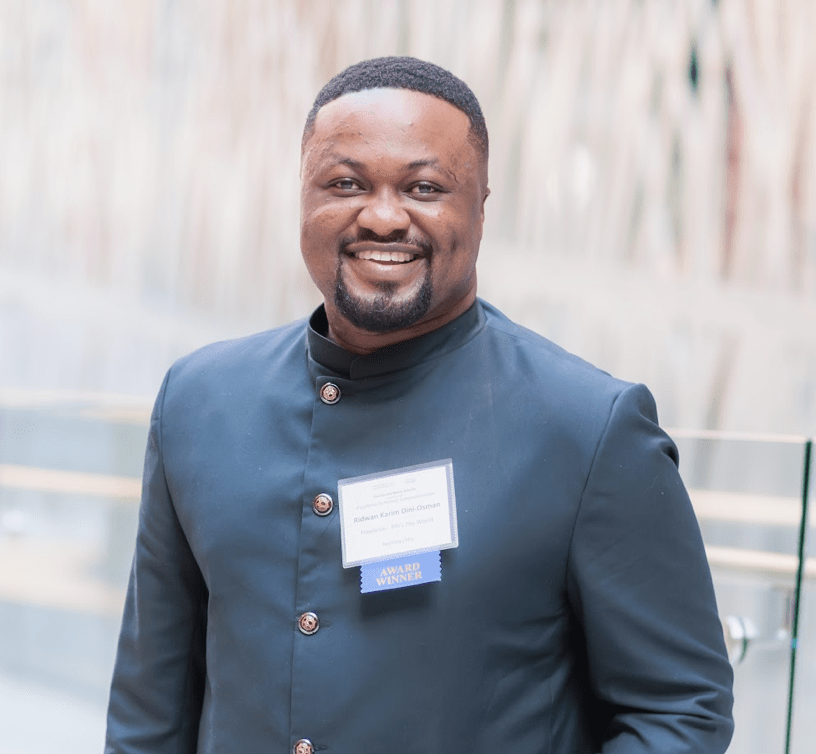
Ridwan Karim Dini-Osman a fellow winner of the Eric and Wendy Schmidt Awards for Excellence in Science Communication, given by the National Academies of Science, Engineering, and Medicine in partnership with Schmidt Futures.
Ridwan is a 2023 Atlantic Fellow for Health Equity, Pulitzer Center grantee and a multiple award-winning broadcast journalist and news anchor in Ghana. He is a regular contributor on the U.S. public radio program, The World, as a freelance journalist reporting on science, global health inequities, and sustainable development.
What sparked your interest in Science Journalism?

I think there is no belaboring the point that science is at the very core of every facet of our existence. Yet the complexities of science make it hard for people particularly those in the developing world to appreciate it. So since my journalism school days, I have always thought about the prospect of using my journalistic work to demystify science to engender sustainable development especially in Africa.
What was the inspiration for any of the stories you reported that led to this award, whether on science, global health inequities, or sustainable development? Did you notice something that was simply neglected, or that was being misrepresented in mainstream media?

I submitted 6 stories for this award and 4 out of the 6 were stories on global health inequities which I feel are the greatest injustices of our time. Why should people, by virtue of their geographical locations lack access to life-saving medications? It is completely unacceptable that in this time and age, having access to life-saving medicines continues to be the preserve of the West!
Take for instance Africa, where I come from, the continent carries 25% of the world’s disease burden yet its share of the global health expenditure is less than 1%. Worse still, the region manufactures only a fraction—less than 2%—of the medicines consumed on the continent. Meanwhile international solidarity to a very large extent, can change the narrative on this. Because like the UNAIDS boss said last year, we are not just interconnected, we are inseparable. We cannot end AIDS or COVID-19 in one country or one continent, we can only end AIDS or COVID-19 everywhere.
What aspect of your role are you most passionate about?

Currently, misinformation and disinformation threaten to erode all the gains we have made in the area of health and science. Therefore making sure there is credible, accurate, balanced and undiluted information to counter the disinformation and misinformation out there is very crucial and non-negotiable. So, for now, that is what journalism means to me, day and night.
What are you currently working on? Will this award help your current projects, or allow you to explore new areas in the future?

First and foremost, I think Schmidt Futures should be very proud of this [initiative]. It is one whose returns will benefit even the poor farmer in my village grappling with climate change.
And for me as a winner, this recognition is a big deal! It will not only help my current and future projects but it will also greatly transform my career. It is a stamp of quality – once you win it, it gives you this aura of credibility. People want to engage you because you’ve received this award. But at the same time, it challenges you to explore new territories and uncharted waters.
Their work
Read Katelyn’s winning newsletter here:
- “New Concerning Variant: B.1.1.529”
- “What Now? How Pandemics End”
- “State Of Affairs: Pediatrics And Omicron”
- “Pan-Coronavirus “Super” Vaccine”
- “Go Get Your Vaccine, Especially With Omicron” (Your Local Epidemiologist, Substack)
- “How Vaccines Reduce Transmission”
Listen to Ridwan’s winning pieces here:
- Ghanaian Parents Eager for Arrival of Malaria Vaccine
- New Treatments for Rare Diseases in Ghana Still Inaccessible
- HIV Drug Shortage Puts Lives of Children and Pregnant Women in Ghana at Risk
- To Fully Vaccinate Population, Ghana Faces Scarcity and a Troubled History
- Ghana’s Fishermen are Drowning in Plastic. The Govt. is Trying to Tackle Pollution Before It’s Too Late.
- How the West’s Obsession with Fast Fashion Compounds an Environmental Nightmare in Ghana
